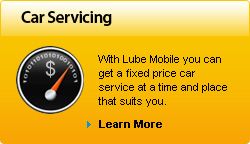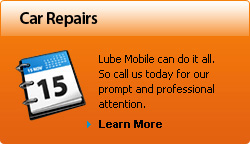How Brakes Work and What Can Go Wrong
When driving, pushing down on the brake pedal causes the car to stop. Every driver knows this. Most don’t think twice about what is going on down there, though; it’s simply second nature. But think about it — how is the power of one leg enough to slow down a massive 1.5 tonne car? The answer is, it’s not — at least, not on its own. Ask a mechanic and they’ll explain that your car’s braking system needs to multiply the force from your leg many times before there is enough power to stop the wheels of your car.
The hydraulic system
The braking system in your car works because of hydraulic pressure. When you depress the brake pedal, pressure is applied to a master cylinder located in the engine compartment. This master cylinder contains a piston which applies pressure to the brake fluid. Because brake fluid is incompressible, it acts with as much power as a steel rod, with one key advantage that a steel rod does not possess: it is able to make its way through complex lines that snake around your car. These hydraulic brake lines are connected to each of your vehicle’s wheels, and the fluid from the master cylinder forces pressure on pistons at each wheel. These, in turn, squeezes two brake pads against a disk which is attached to the wheel, causing your car to slow down and eventually stop.
Disk brakes and drum brakes
In modern cars, the friction required to slow your car down is generally applied through disc brakes on the front wheels, and drum brakes on the back wheels. In the disc brake system, brake discs are connected to the wheel or axle. To stop the wheel, brake pads are forced against both sides of the disc, causing the attached wheel to slow down. In drum brakes, friction occurs as a result of brake shoes pressing against the inside of a rotating drum.
What can go wrong with brakes?
Obviously, having a braking system that fails could be very bad. If your car doesn’t have the ability to stop quickly and easily, this may lead to accidents, both minor and major. Some of the factors that might cause brake failure include:
- Having grease or oil on the brakes. If there is grease or oil present, it can interfere with the friction required for the brakes to work.
- Overheated brakes. When this happens, the metal in the brake rotors will form “hot spots”. Hot spots work to resist friction from the brake pads. Because the brake pads have nothing they can grasp, there will be no friction and, as already mentioned, friction is essential for slowing down your car.
- Worn brake pads. If your brake pads have worn down to the rotors, your car will not be able to slow down effectively. If you ever hear your brakes squealing, this is probably what has gone wrong. When you get a car service, the brake pads are one of the things that will be checked.
- Brake fluid leak. If there is a leak somewhere in the brake system, you may be losing brake fluid. This will mean there’s not enough fluid in the master cylinder and, since the fluid is key to applying hydraulic pressure, your brakes will fail.




